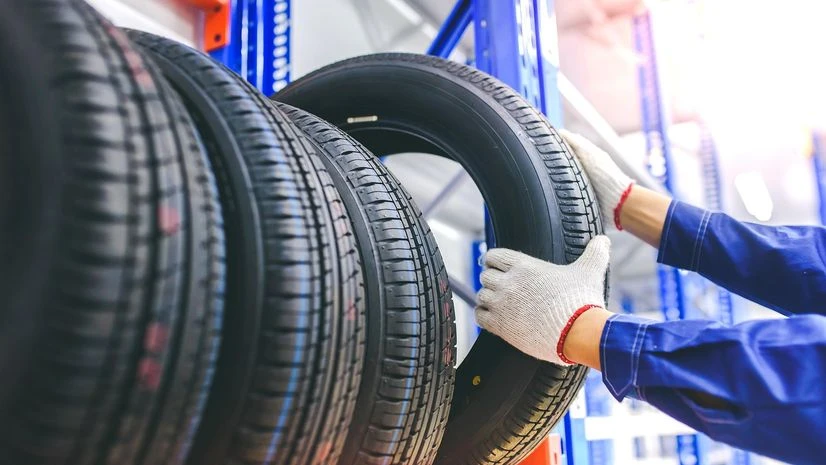Tyre manufacturers in India are bracing for a second consecutive year of single-digit revenue growth, with estimates suggesting the increase to be at 7-8 per cent during the financial year 2024-2025 (FY25), according to ratings agency CRISIL.
This follows a similar trend in the previous year, marking a significant slowdown from the robust 21 per cent compound annual growth rate (CAGR) witnessed between FY21 and FY23.
The modest uptick will be driven by a 3-4 per cent increase in both realisations and volumes, supported by gradual price hikes and replacement demand, even as the industry battles soaring natural rubber costs.
Natural rubber, which constitutes nearly half of the raw material mix for tyre production, has seen a price surge due to global shortages caused by adverse weather in major producing nations such as Thailand and Vietnam. This sharp rise, coupled with the modest ability to pass on costs to customers, is expected to dent operating profitability, which could decline by approximately 300 basis points to 13 per cent from 16 per cent last financial year, the report said.
“Domestic demand accounts for 75 per cent of the tyre industry’s sales in tonnage terms, of which two-thirds comes from the replacement segment, primarily for commercial and passenger vehicles,” said Anuj Sethi, senior director at CRISIL Ratings.
“This segment will drive volume growth this year, while OEM demand is expected to rise by just 1-2 per cent due to subdued commercial vehicle sales,” he added.
More From This Section
Exports, which constitute around 25 per cent of the industry's sales, are also facing headwinds. Weak demand in key markets like North America and Europe, coupled with supply chain disruptions and increased freight costs, have dampened export prospects. Growth in exports is projected to be limited to 2-3 per cent in FY25.
Despite the challenges, the credit profiles of leading tyre manufacturers are expected to remain stable, supported by strong balance sheets and prudent capital expenditure. The top six tyre makers, representing 87 per cent of the industry’s revenue, are expected to invest Rs 5,500 crore this financial year, slightly lower than the previous year, focusing on essential capacity enhancements and debottlenecking initiatives.
“Capacity utilisation levels are hovering around 80 per cent, and tyre makers are carefully implementing price increases and capital expenditure to maintain capital efficiency,” noted Naren Kartic K., associate director at CRISIL Ratings.
The government’s extension of countervailing duties on Chinese radial tyres has also eased competitive pressures for domestic manufacturers, providing some relief amid an otherwise challenging environment.

)